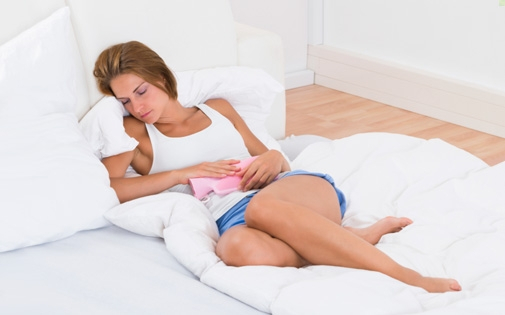For appointment and information, you can rich us on +90532 433 6003(whatsapp)
 Obstetrician, Gynecologist, Genital Esthetic Surgeon in Turkey
Obstetrician, Gynecologist, Genital Esthetic Surgeon in TurkeyFor appointment and information, you can rich us on +90532 433 6003(whatsapp)
 Obstetrician, Gynecologist, Genital Esthetic Surgeon in Turkey
Obstetrician, Gynecologist, Genital Esthetic Surgeon in Turkey
More than half of women experience pain during menstruation. Menstrual pain can be classified into primary and secondary dysmenorhea.
Menstrual pain is cramping or stabbing pain which is felt in the lower abdominal region starting before or during menstruation. Sometimes the pain may radiate onto the hips, legs and waist. The severity may change from one woman to the other.
In some women the pain may be light, in others it may be severe enough to affect daily life.Some patients may be admitted to emergency units with severe menstrual pain.
Menstraul pain seen in young healthy women starting a few years after first menstruation is called primary dysmenorhea.
The cause of primary dysmenorhea is a protein called prostaglandin which is secreted from the endometrium (inner lining of the uterus). During menstrual bleeding this protein leads to contractions in uterine muscles so that the endometrium can be shed. When these contractions are strong, uterine vessels are constricted so that the blood flow and oxygenation of the uterine muscles decrease. This lack of oxygen also contributes to menstrual pain.
Usually menstrual pain starts a few years after the first menstruations in adolescents. The severity of menstrual cramps decreases as the woman ages.
Some women may have menstrual pain due to gynecological pathologies.This is called secondary dysmenorhea. These gynecological pathologies can be summarised as:
Especially for women over 40 that experience menstrual pain, these pathologies should be ruled out.
Treatment of menstrual pain involves lifestyle changes, medical treatment and surgery for underlying gynecological pathologies.
Lifestyle changes that may decrease menstrual pain may be summarised as:
There may be some recommendations to releive menstrual pain without using medications such as:
Medical treatment for menstrual pain can be as follows:
Usually the first choice for menstrual pian is pain killers. They are more effective if taken when the menstrual pain is light, even one day before menstraul bleeding.
For patients who need to use a contraceptive method,oral contraceptives or hormonal IUD may be recommended as first choice.
The following should be avoided during menstruation to decrease pain: